Ascension Sunday -- Acts 1:1-11
 Sunday, May 24, 2009 at 04:14PM
Sunday, May 24, 2009 at 04:14PM 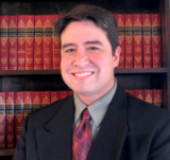 Here's this morning's sermon on Psalm 68/Acts 1 from Rev. Souza
Here's this morning's sermon on Psalm 68/Acts 1 from Rev. Souza
http://links.christreformed.org/realaudio/MS20090524-HeAscended.mp3
Living in Light of Two Ages
____________________________
 Sunday, May 24, 2009 at 04:14PM
Sunday, May 24, 2009 at 04:14PM  Here's this morning's sermon on Psalm 68/Acts 1 from Rev. Souza
Here's this morning's sermon on Psalm 68/Acts 1 from Rev. Souza
http://links.christreformed.org/realaudio/MS20090524-HeAscended.mp3
 Friday, May 22, 2009 at 09:02AM
Friday, May 22, 2009 at 09:02AM 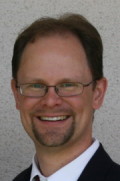
Join us tonight at 7:30 p.m. as Rev. Andrew Compton concludes his series entitled "Current Trends in Old Testament Studies." We always have a lively discussion, followed by a question and answer period and refreshments.
Tonights lecture title: Qumran and the Dead Sea Scrolls, Part 2
Summation: Dan Brown’s The DaVinci Code, in its rewriting of church history, cited among other things, the discovery of the Dead Sea Scrolls. In fact, since the scrolls’ discovery in 1947, much uncertainty and speculation has ensued over if and how the scrolls relate to the early Christianity. In this lecture, we’ll cover some of the basics of one of the greatest discoveries of the 20th century for Old Testament studies. We’ll discuss the site of Qumran, the kinds of scrolls found, the Jewish community reflected in the non-biblical scrolls, how the biblical scrolls help us understand the Hebrew text of the Old Testament, and whether the scrolls speak of Christ or the apostolic era. Once the rumors and uncertainty are cleared up, we’ll see that the scrolls are indeed a wonderful historical discovery that tell us a great deal of the evolution of Judaism and the canonization of the Old Testament in the final centuries before Christ.
 Thursday, May 21, 2009 at 03:38PM
Thursday, May 21, 2009 at 03:38PM 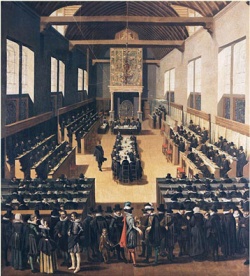
Synod rejects the errors of those . . .
(II) Who teach that the spiritual gifts or the good dispositions and virtues such as goodness, holiness, and righteousness could not have resided in man's will when he was first created, and therefore could not have been separated from the will at the fall.
For this conflicts with the apostle's description of the image of God in Ephesians 4:24, where he portrays the image in terms of righteousness and holiness, which definitely reside in the will.
_____________________________
As we discussed a bit earlier, this particular error of the Arminians has to do with one’s estimation of the effects of the fall upon the human race. If one believes that the human race suffered great loss in the fall (as do the Reformed) then one must assign a proportionate amount of grace to undo these effects. If the fall brings great damage, grace must repair that damage before people can come to faith in Jesus Christ.
Here, the critical question that must be asked is this: “does the fall bring about damage to essential human nature?” As we have seen, the authors of the Canons are careful to point out that, “yes, mankind suffered the loss of true righteousness, holiness, and knowledge in the fall, that these are part of essential (not accidental, in the sense of being “incidental to) human nature. The loss of them means that after the fall, even though humanity remains human because we retain the image of God, nevertheless, without the supernatural restoration of these essential characteristics through the new birth, men and women cannot come to faith in Christ apart from prior regeneration.
According to Louis Berkhof, all of the Reformers taught that the image of God, “included both natural endowments and those spiritual qualities designated as original righteousness, and holiness. The whole image was vitiated by sin, but only those spiritual qualities were completely lost” (Systematic Theology, 203). This means that sin brought great havoc upon the human race itself, not only in terms of original guilt for Adam’s, but in terms of the corruption of essential human nature. The loss of true righteousness, holiness, and knowledge, are of great consequence.
Although this all sounds quite theoretical, it is Charles Spurgeon who put things into biblical perspective when he said, “he who thinks lightly of sin will think lightly of the Savior.” Since the Reformed see in the fall the alteration of essential human nature, this then requires a supernatural act of God (regeneration and the new birth) to rectify the situation. This is why we must be born again–so that we can be converted at all! If left to ourselves, we would not, indeed we could not, believe the gospel and be saved.
But if true righteousness, knowledge, and holiness, were not part of man’s original constitution at creation, as Arminians and Roman Catholics argue, then man did not lose these in the fall. If these things are not an essential aspect oh human nature, but only incidental to it, restoration of these things are not required in order for people to come to faith in Jesus Christ.
In semi-Pelagian schemes of sin and grace, this restoration occurs as a result of someone coming to faith in Christ. Even though fallen in Adam, men and women supposedly retain the ability come to faith in Christ, since absolutely nothing essential to human nature has been lost as a result of the fall.
Although the “earlier Arminians taught that the image of God consisted only in man’s dominion over the lower creation” (Berkhof, ST, 203) later Arminians rejected the notion of original guilt for Adam’s act, but also questioned the very idea of the original corruption of the human race as well. Arminius’ Adam is wounded, but not corrupted as a result of the fall. Indeed Arminius himself stated, “it is natural and essential to the soul to be a spirit, and to be endowed with the power of understanding and of willing, both according to nature and the mode of liberty. But the knowledge of God, and of things pertaining to eternal salvation, is supernatural and accidental; as are likewise the rectitude and holiness of the will according to that knowledge” (James Arminius, The Works of, II.363). Arminius’ Adam has fallen alright . . . But unlike the Adam found in Scripture, Arminius' Adam can get up!
The best refutation of this notion is that provided by the authors of the Canons. In Ephesians 4:24, Paul speaks of the putting on of the “new self” as one puts on a garment, which, Paul says, is created to be like God in true righteousness and holiness. Likewise in Colossians 3:10, Paul speaks of the fact that we have put on the new self, which is renewed in the knowledge of the image of its creator. The grammatical construction in both passages makes it clear that the new self—that is, the new nature which results from regeneration—includes the putting on of true righteousness, knowledge, and holiness. The fact that these things are renewed, at the very least, indicates that these things were part of humanities’ essential human nature before the Fall.
Although these are lost in Adam, they are restored in Jesus Christ. This is why the Reformed argue that regeneration must precede faith, since it is only as a result of the new birth, that we come to faith and are restored in the image of Christ. Sin has done great damage to all of Adam's fallen race, but the saving grace of God in Jesus Christ inevitably triumphs! “For if, because of one man's trespass, death reigned through that one man, much more will those who receive the abundance of grace and the free gift of righteousness reign in life through the one man Jesus Christ” (Romans 5:17)
 Wednesday, May 20, 2009 at 01:30PM
Wednesday, May 20, 2009 at 01:30PM 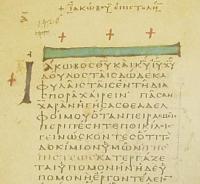 The Fourth in a Series of Sermons on the Epistle of James
The Fourth in a Series of Sermons on the Epistle of James
Christianity is a revolutionary religion which utterly confounds those who do not have faith in Christ. Sinful human nature tells us that good people go to heaven and that bad people go to hell. But Christianity teaches that God justifies the wicked. Sinful human nature tells us that the standard by which we judge people is external: beauty, fame, accomplishments, power, and fortune. But Christianity teaches that God’s standard of judgment is the Ten Commandments.
In the first-century world in which the Epistle of James was written, society was dominated by social castes and wealthy land-owners. But James tells his audience that Christians must show no partiality, either to the rich, or to the poor. Furthermore, James points out how flawed human judgment can be when it comes to matters of sin and salvation. Sinful human nature tells us that people who have more good deeds than bad deeds somehow make it to heaven. But James tells us that God is not going to grade the final exam for eternal life on a curve–God’s passing mark is 100% perfect obedience. In fact, as James will point out, commit but a single sin, and God regards you as a law-breaker, guilty of breaking all of his commandments.
In this sense, Christianity is an utterly revolutionary religion because it completely levels the human playing field. All of us are sinners who deserve to be punished. This is why we have no business judging anyone else. God saves sinners based not upon their merits, but upon the merits of Christ. And once saved by the merits of Christ, all manner of good works spring forth. Non-Christians simply cannot understand this because this is so contrary to sinful human nature.
As we continue our series on the Epistle of James we now make our way into the first thirteen verses of James chapter 2. In this section of his epistle, James takes up a discussion of the evils of discrimination, in particular the way in which wealthy land-owners and merchants throughout Palestine and Syria were exploiting those in James’ audience who were suffering this persecution and hardship because of their loyalty to Christ. Many of those to whom this epistle is addressed–the twelve tribes of the diaspora (persecuted Jewish Christians)–had been cut off from all ties to family, work, and both the temple and the synagogue, because they became followers of Jesus. Evicted from the synagogue and rejected by their families, many joined newly formed house-churches, but were being looked down upon in these assemblies because of their poverty, an important pastoral matter James now addresses head-on.
In many ways, this section of James amounts to the author fleshing out several of the comments he made at the end of the first chapter. In verse 22, James exhorted his audience to “be doers of the word, and not hearers only, deceiving yourselves.” In verse 27, James spoke of the need to show compassion to the poor. “Religion that is pure and undefiled before God, the Father, is this: to visit orphans and widows in their affliction, and to keep oneself unstained from the world.” Therefore, the theme of this next section of James–a theme to which James will return in chapter five–is that discrimination against the poor is a violation of the law of God. In fact, based upon what James has said in chapter one about those who hear the word but do not do the word, it is not a stretch to conclude that those who use worldly standards to judge each other in self-righteousness are actually self-deceived. The standard of measurement which counts is not someone’s opinion, or their sinful prejudices. The standard of measurement that God uses is his law. And when we are measured against that standard, all of us quickly realize that we are sinners.
To read the rest of this sermon, click here
 Wednesday, May 20, 2009 at 11:54AM
Wednesday, May 20, 2009 at 11:54AM 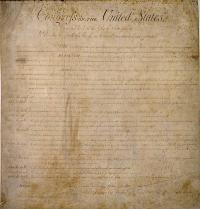 I'm not a constitutional scholar. I don't even play one on radio. Despite the fact I was educated in California's public schools, I do recall this line from the closing section of the Fifth Amendment--"nor shall private property be taken for public use, without just compensation."
I'm not a constitutional scholar. I don't even play one on radio. Despite the fact I was educated in California's public schools, I do recall this line from the closing section of the Fifth Amendment--"nor shall private property be taken for public use, without just compensation."
So, when the Obama administration decrees (as a part of the government take-over of GM and Chrysler) that a certain number of Chrysler and Chevrolet dealers (which are privately owned, with personal inventory, debt, and employees) must close (without any compensation, or purchase of their inventories or properties) simply because someone in DC tells them they must, we have crossed a very dangerous line.
Many a family business and fortune will be wiped out. Not to mention the large number of those employed by these dealers who will likewise be unemployed and now forced to exist on government largess.
For all intents and purposes, how is this not government seizure of private property?
This is one lawsuit I will watch very closely. Click here: http://www.freep.com/article/20090518/BUSINESS01/90518004/1014/Chrysler+dealers+prepare+legal+fight
The DC Caesars need their collective private property-grabbing noses bloodied on this one! How is this not a violation of the Fifth Amendment?
 Tuesday, May 19, 2009 at 07:47AM
Tuesday, May 19, 2009 at 07:47AM 
Here's a very interesting photo essay found on one of CT's blogs. The theme is empty "worship centers." Click here: Christianity Today Imago Fidei: Off-Duty Megachurches
As you look through the photos on the CT blog, be sure to go to the original photo gallery from which these photos are representative. Once you follow the link to "Joe Johnson Photography," find the "projects" section at the top of the website, then click on the "mega churches" link. Click here: http://www.joejohnsonphoto.com/
Mr. Johnson's photography is compelling, but sadly indicative of so much of evangelical worship--grounded in fascination with the latest technology, while completely void of any emphasis on word and sacrament.
 Monday, May 18, 2009 at 02:49PM
Monday, May 18, 2009 at 02:49PM  This move makes you wonder which would be worse . . . A Muslim head of programming, or a liberal Protestant head of programming? Not an easy choice. The BBC went with the Muslim. Click here: Controversial Muslim programme maker appointed head of BBC religious broadcasting - CCFON.org - Christian Concern
This move makes you wonder which would be worse . . . A Muslim head of programming, or a liberal Protestant head of programming? Not an easy choice. The BBC went with the Muslim. Click here: Controversial Muslim programme maker appointed head of BBC religious broadcasting - CCFON.org - Christian Concern
What was the copy editor thinking? A recent news story concludes with this gem. "Police said the toddler did not have a previous record." Lets hope not! Seems like the toddler was loose in grandma's car--she left the engine running after an accident--and the tyke put the car in drive and immediately crashed into a nearby sign. Obviously, it was his first offense. Click here: Toddler Drives Into Street Sign - Denver News Story - KMGH Denver
Cat lovers take heed. No one would ever debate whether cats have souls! With dogs, that's not the case. I'm agnostic on this one. Click here: Nation & World | Dogs have souls, but you already knew that | Seattle Times Newspaper
A burglar wearing a "Snuggie?" I guess it went well with his "hoodie." Click here: Cops: Man in Snuggie attempted burglary | Daily Record | Daily Record
 Monday, May 18, 2009 at 02:41PM
Monday, May 18, 2009 at 02:41PM 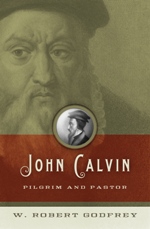 If you haven't purchased and read Dr. Godfrey's book yet, here are two more reasons why you should.
If you haven't purchased and read Dr. Godfrey's book yet, here are two more reasons why you should.
Michael Dewalt has an interview with Dr. Godfrey on his blog. Click here: Interview with Dr. W. Robert Godfrey on his new title, John Calvin: Pilgrim and Pastor « Gospel-Centered Musings
Collin Hanson interviews Dr. Godfrey for CT. Click here: Man of His Time for All Times | Christianity Today | A Magazine of Evangelical Conviction
 Sunday, May 17, 2009 at 09:43PM
Sunday, May 17, 2009 at 09:43PM  "When I do good, I feel good; when I do bad, I feel bad. That's my religion."
"When I do good, I feel good; when I do bad, I feel bad. That's my religion."
Leave your guess in the comments section below. Please, no cheating or google searches. Answer to follow in one week.
 Kim Riddlebarger
Kim Riddlebarger
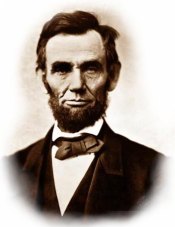 This oft-quoted but unsourced comment has been attributed to Abraham Lincoln.
This oft-quoted but unsourced comment has been attributed to Abraham Lincoln.
 Sunday, May 17, 2009 at 05:45PM
Sunday, May 17, 2009 at 05:45PM 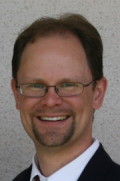 Here's the audio from last Friday's Academy lecture (05/15/09). The lecture is entitled "Qumran and the Dead Sea Scrolls, Part 1" Current Trends in Old Testament Studies."
Here's the audio from last Friday's Academy lecture (05/15/09). The lecture is entitled "Qumran and the Dead Sea Scrolls, Part 1" Current Trends in Old Testament Studies."
http://links.christreformed.org/realaudio/A20090515-TrendsOTStudies.mp3